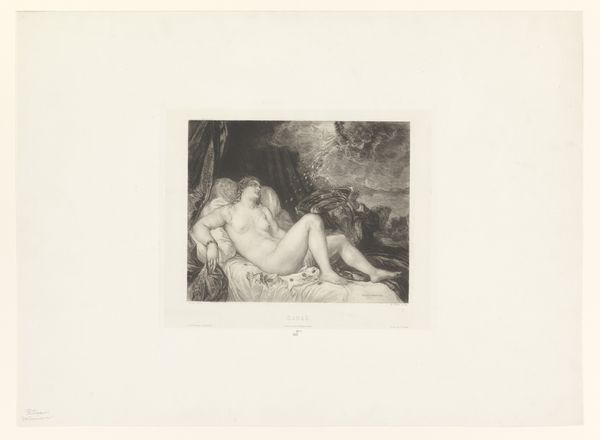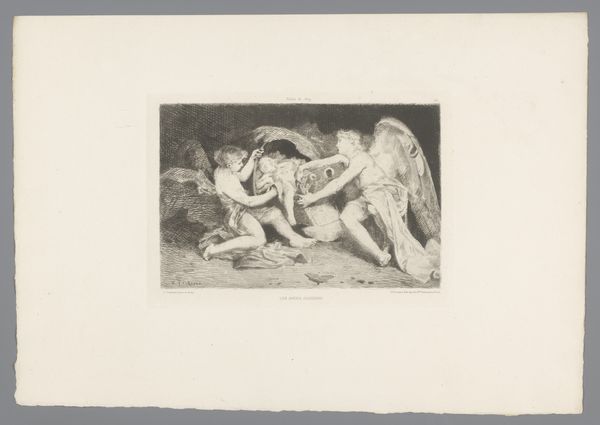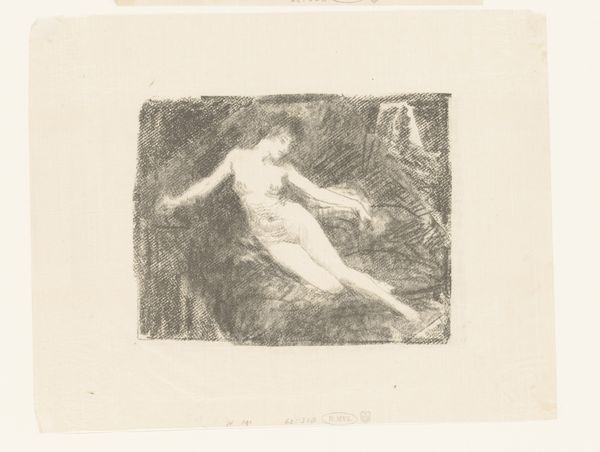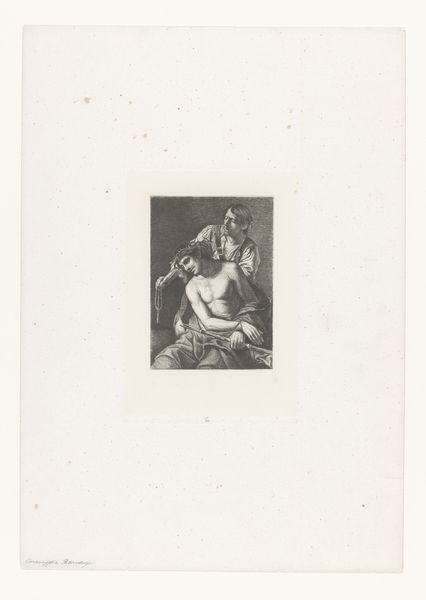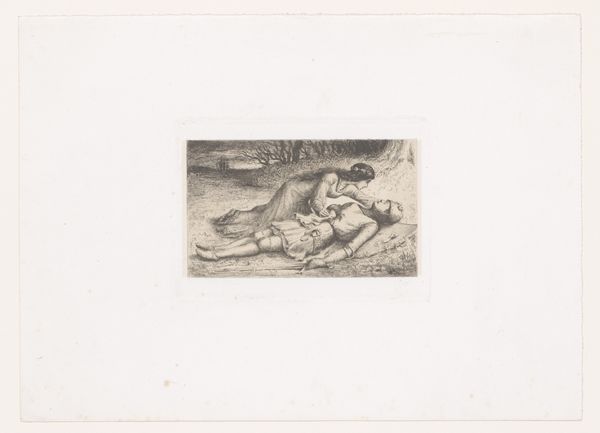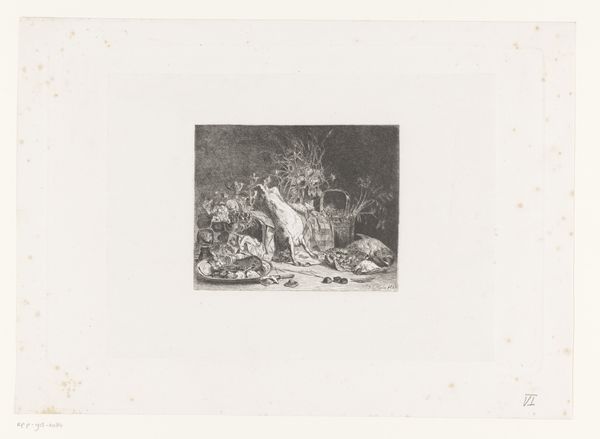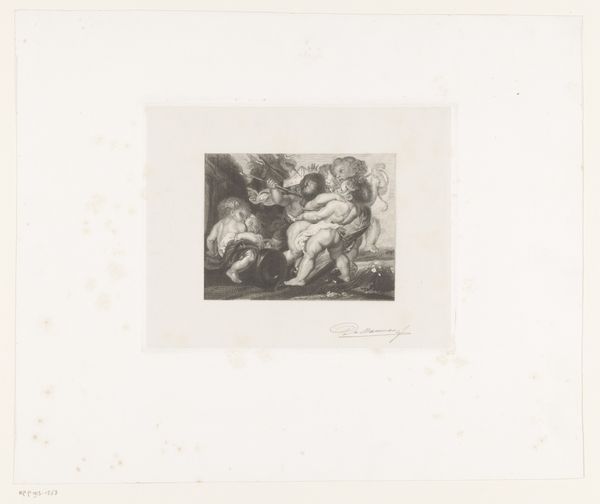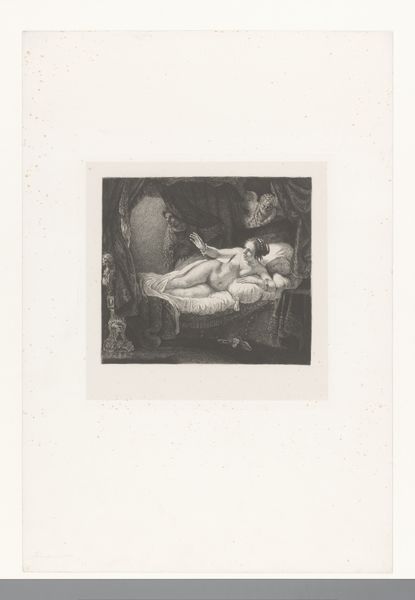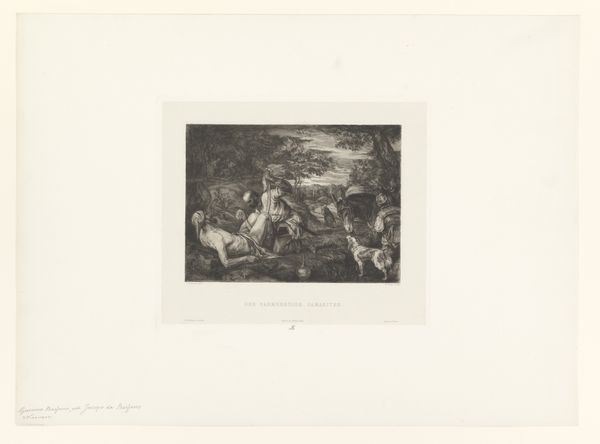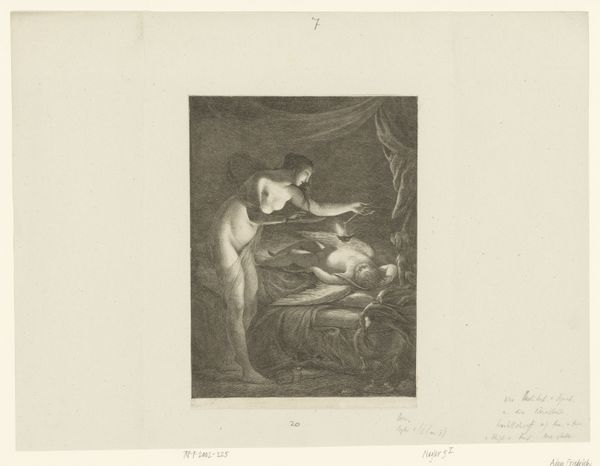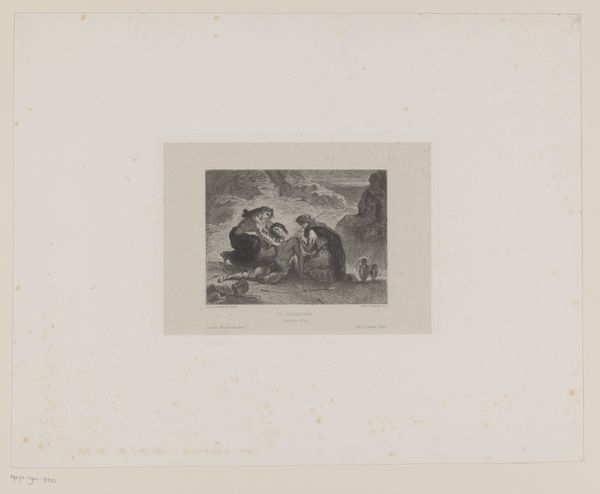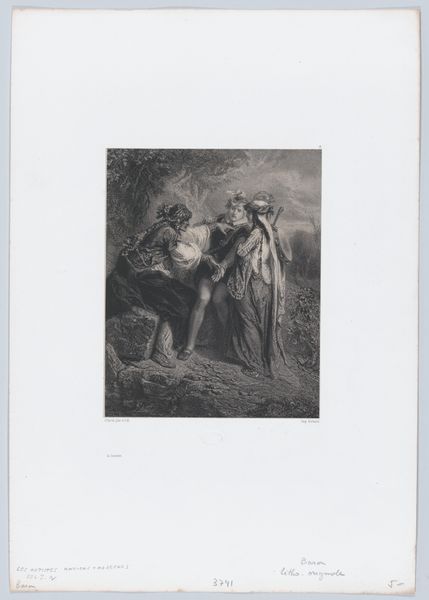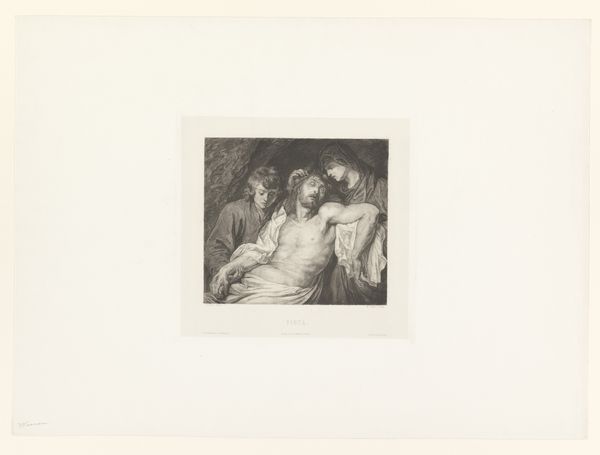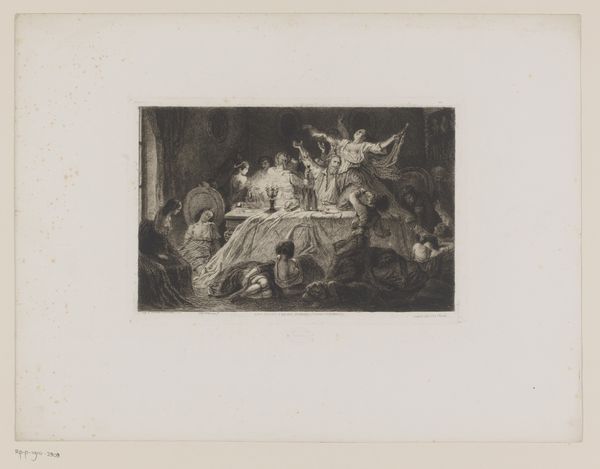
print, etching, intaglio, paper
#
narrative-art
# print
#
etching
#
intaglio
#
landscape
#
figuration
#
paper
#
academic-art
#
nude
Dimensions: height 197 mm, width 252 mm
Copyright: Rijks Museum: Open Domain
Editor: This intaglio print, "Zeus in de gedaante van een gouden regen bezoekt Danaë," by Nikolay Semyonovich Mosolov, seems to capture a dramatic scene. Danaë appears rather passive despite the obviously impactful events. How do you interpret this work, especially considering its narrative? Curator: It's crucial to acknowledge the power dynamics at play. While seemingly classical, this depiction perpetuates a problematic narrative: Zeus, in the form of golden rain, impregnating Danaë against, presumably, her will. The "golden rain" itself is a symbol loaded with class implications: wealth and privilege allowing violation. It brings forth important questions around consent, female agency, and the historic artistic license afforded to portray powerful men preying on women. Does the landscape evoke any feelings to you? Editor: Now that you mention it, the landscape does add a sense of isolation. Is that meant to represent Danaë's powerlessness? Curator: Exactly. Considering the story's broader implications—the prophecy, her father's actions to imprison her—Danaë's isolation becomes a central theme. It signifies her entrapment, not only physically but also within a patriarchal structure that denies her any autonomy. This artistic rendering further silences Danaë, reducing her to a passive object of divine and earthly power. I wonder if that subtext of class division and patriarchal dominance was intentional by Mosolov. Editor: I didn't view it that way initially. I’m surprised at how a seemingly classical scene carries such a heavy weight of socio-political issues. Thanks for highlighting this interpretation. Curator: It reveals the importance of approaching art with a critical eye, always questioning whose stories are being told and how they reinforce existing power structures. It also highlights how vital it is that we look critically at class structure when analyzing pieces.
Comments
No comments
Be the first to comment and join the conversation on the ultimate creative platform.
